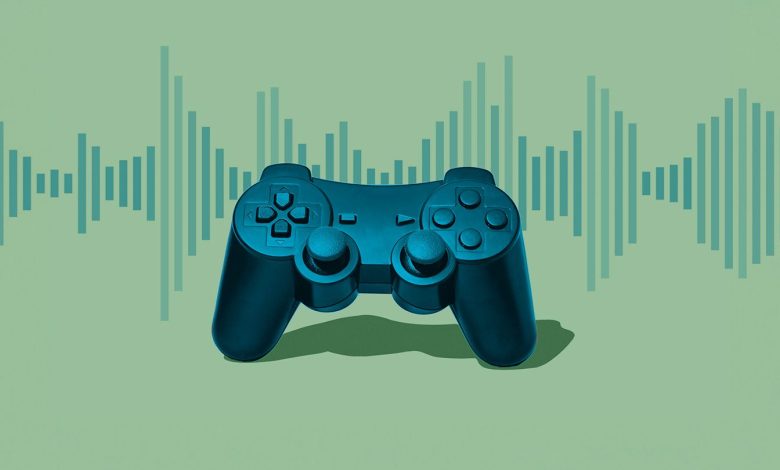Loud Video Games Tied to Hearing Loss and Tinnitus Over Time

[ad_1]
Loud concerts aren’t the only activity that can lead to hearing loss over time. A new study suggests that people who spend hours on end playing video games may also be at increased risk for hearing problems.
“Video games are often played for long periods of time and at high sound levels,” says the lead study author, Lauren Dillard, PhD, AuD, an audiologist at the Medical University of South Carolina in Charleston and a consultant for the World Health Organization.
“Permissible levels of sound exposure are based on both the duration of listening and the loudness of the sounds,” Dr. Dillard adds. “Therefore, the longer people game for and the louder the volume, the more likely they are to be at risk of hearing loss.”
Since many devoted gamers play for several hours at a time, several days a week, researchers wanted to examine the connection between the duration of play, noise levels from games, and the risk of future hearing loss. They looked at data from 14 previously published studies on gaming and hearing loss that, combined, had more than 53,000 participants.
These individual studies examined this question in a variety of ways, focusing on different types of sounds from sources like headphones, mobile phones, home entertainment systems, and dedicated gaming centers. Taken together, however, these smaller studies pointed to video games as a clear potential risk factor for hearing loss, according to results published in BMJ Public Health.
Video Game Noise Levels
Noise levels varied from around 43 decibels for mobile devices to over 80 decibels for dedicated gaming centers. To put that in context, regular conversation is around 60 decibels, while city traffic inside a car can be between 80 and 85 decibels, according to the Centers for Disease Control and Prevention.
Exposure to video game noise varied from several hours a day to as little as once a month.
Generally, adults can experience hearing damage when they have more than 40 hours a week of exposure to volumes higher than 80 decibels, the researchers explained in their paper. But when the volume is higher, hearing damage can occur much faster. For example, it’s safe to be exposed to 83-decibel sounds only for 20 hours a week, and by the time the volume reaches 98 decibels it’s safe for only 38 minutes, the researchers wrote.
Children run the risk of hearing damage from even shorter exposure to even lower volume sounds, the researchers noted. For example, kids can generally sustain hearing damage when they’re exposed to more than 40 hours a week of noises above 75 decibels. They can safely listen to sounds at 83 decibels for just 6.5 hours a week, and can handle 98-decibel sounds for no more than 12 minutes a week.
Sudden bursts of sound in video games reached as high as 119 decibels in one study, far exceeding levels considered safe for children, according to the study.
Some studies in the analysis found strong associations between gaming during childhood and adolescence and a risk of hearing loss. Two of these studies linked play in gaming centers — along the lines of karaoke clubs for e-sports — with increased odds of severe tinnitus, or ringing in the ears, and high-frequency hearing loss in both ears.
One study that measured sound levels of video games through headphones found that sound levels ranged from about 85 to 91 decibels.
Video Games Pose a Potential Risk of Hearing Loss
Some of the studies dated back to the 1990s, making it possible that the noise levels or duration of exposure might differ from games available today. And most of the more recent studies in the analysis didn’t objectively measure average sound levels from video games or gaming centers.
Even so, the findings point to a clear need for gamers to consider their potential risk for hearing loss, Dillard says. That’s because exposure to loud sounds for any length of time can cause fatigue to the sensory cells in the ear that results in temporary hearing loss or ringing in the ears.
“While these sensations may resolve in a few days as the sensory cells recover, regular or prolonged exposure to noise can build up and result in permanent hearing loss over time,” Dillard says.
For people who play video games at home, turning down the volume on speakers or using headphones specially designed to reduce noise exposure may be two ways to minimize the risk of hearing loss, says Jennifer Derebery, MD, the chief research officer at the House Institute Foundation in Los Angeles.
“In general, it’s better to use speakers and not use headphones” to reduce the risk of hearing loss, says Dr. Derebery, who wasn’t involved in the new study. When people use speakers, whether at home or in a gaming center, they can use protective earplugs to limit their noise exposure, Derebery also advises.
Beyond this, video gamers should see a doctor or audiologist if they notice symptoms of hearing loss, says Colleen Le Prell, PhD, the head of the department of speech, language, and hearing at the University of Texas at Dallas.
“Anyone who notices a perception of ringing in their ears, ears that feel `full,’ sound seeming muffled, or increased difficulty understanding speech or other sounds has likely caused damage to their ears,” says Dr. Le Prell, who wasn’t involved in the new study. “This damage may recover with a period of relative quiet, or the damage could be permanent.”
[ad_2]




